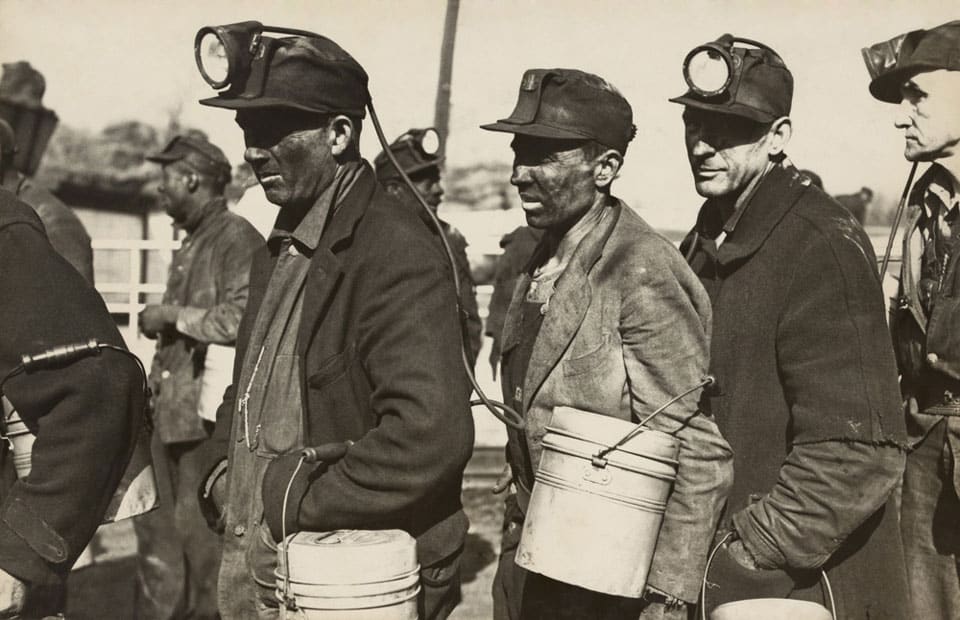Revealed: Richest Countries During the Great Depression

Global Perspective: During the Great Depression, the United States was ranked as the wealthiest country with a GDP of $1.461 trillion in 1937. Currently, in 2024, the US has a GDP of $27.97 trillion. The Former USSR ranked second on the list with a GDP of $379.98 billion in 1929, growing by 66.99% to $634.56 billion in 1937. Russia, most of which was previously part of the Former USSR, now has a GDP of $5.23 trillion.
China was ranked as the third richest country during the Great Depression with an estimated GDP of $488.73 billion in 1929, which grew by 8.03% until 1937. In 2024, China’s GDP is $35.04 trillion. Germany ranked fourth on the list with a GDP of $418.02 billion in 1929, increasing to $506.56 billion in 1937. As of 2024, Germany’s GDP stands at $5.72 trillion. India was ranked 6th among the wealthiest countries during the Great Depression. In 1929, the country’s GDP was estimated to be $386.39 billion, which grew by 3.46% and reached $399.83 billion in 1937. As of 2024, India’s GDP stands at $14.26 trillion. On the other hand, France was ranked 7th on our list. In 1929, the country had a GDP of $309.55 billion, which shrank by 3.12% from 1929 to 1937. As of 2024, France’s GDP is $4.01 trillion.
Revealed: Richest Countries During the Great Depression
| Rank | Country | GDP (1929) | GDP (1937) | Percentage Change in GDP (1929-1937) | GDP PPP (2024) |
|---|---|---|---|---|---|
| 1 | United States | $1.461 trillion | $1.462 trillion | 0.07% | $27.97 trillion |
| 2 | Former USSR/Current Russia | $379.98 billion | $634.56 billion | 66.99% | $5.23 trillion |
| 3 | China | $488.73 billion | $528.00 billion | 8.03% | $35.04 trillion |
| 4 | Germany | $418.02 billion | $506.56 billion | 21.18% | $5.72 trillion |
| 5 | United Kingdom | $400.63 billion | $468.68 billion | 16.98% | $3.98 trillion |
| 6 | India | $386.39 billion | $399.83 billion | 3.46% | $14.26 trillion |
| 7 | France | $309.55 billion | $299.88 billion | -3.12% | $4.01 trillion |
| 8 | Japan | $231.79 billion | $290.45 billion | 25.31% | $6.71 trillion |
| 9 | Italy | $197.85 billion | $210.13 billion | 6.20% | $3.29 trillion |
| 10 | Indonesia | $103.85 billion | $118.78 billion | 14.76% | $4.72 trillion |
| 11 | Poland | $93.98 billion | $93.97 billion | -0.01% | $1.79 trillion |
| 12 | Argentina | $80.69 billion | $88.69 billion | 9.92% | $1.30 trillion |
| 13 | Canada | $83.20 billion | 80.86 billion | -2.21% | $2.47 trillion |
| 14 | Netherlands | $70.56 billion | $74.46 billion | 5.53% | $1.34 trillion |
| 15 | Spain | $96.85 billion | $66.46 billion | -31.37% | $2.51 trillion |
| 16 | Czechoslovakia/Current Czechia | $67.32 billion | $66.28 billion | -1.54% | $564.19 billion |
| 17 | Czechoslovakia/Current Slovakia | $67.32 billion | $66.28 billion | -1.54% | $240.65 billion |
| 18 | Belgium | $64.70 billion | $66.00 billion | 2.00% | $793.83 billion |
| 19 | Australia | $53.65 billion | $62.65 billion | 16.77% | $1.78 trillion |
| 20 | Brazil | $48.18 billion | $62.28 billion | 29.25% | $4.62 trillion |
| 21 | Mexico | $40.90 billion | $48.07 billion | 17.53% | $3.42 trillion |
The Great Depression was a severe economic depression that affected the whole world during the 1930s. Although it began in the United States, it soon spread to other countries, and in most of them, it lasted until the late 1930s. It was the longest, deepest, and most widespread depression of the 20th century, and its negative impacts are still studied and remembered today.
The Great Depression started with a major fall in stock prices in the US, which began around September 4, 1929. But it became worldwide news after the stock market crash of October 29, 1929 (known as Black Tuesday). From 1929 to 1932, the global GDP fell by an estimated 15%. By comparison, during the Great Recession of 2008-2009, the worldwide GDP fell by less than 1%. Although some economies started to recover by the mid-1930s, in many countries, the negative effects of the Great Depression lasted until the beginning of World War II.
The Great Depression had devastating effects on countries both rich and poor. Personal income, tax revenue, profits, and prices all dropped, while international trade fell by more than 50%. Unemployment rates skyrocketed, reaching 25% in the US and 33% in some other countries.
The effects were felt in cities all around the world, especially those that depended on heavy industry. Construction was virtually halted in many countries, and farming communities and rural areas suffered as crop prices fell by about 60%. People working in primary sector industries like mining and logging were hit the hardest, as they had few alternative sources of jobs.
There are two classical competing theories about the cause of the Great Depression: the Keynesian (demand-driven) and the monetarist explanations. According to demand-driven theorists, a large-scale loss of confidence led to a sudden reduction in consumption and investment spending. Once panic and deflation set in, many people believed they could avoid further losses by keeping clear of the markets. Holding onto money became profitable as prices dropped lower, and a given amount of money bought ever more goods, exacerbating the drop in demand. On the other hand, monetarists believe that the Great Depression started as an ordinary recession but was greatly aggravated by the shrinking of the money supply, which caused it to spiral down into the Great Depression.
Have you read?
20 US Cities that Offer the Best Value for your Social Security Income.
Revealed: These are the 25 Modern Inventions we really Don’t Use Anymore.
Richest Billionaire Investors In The World, 2024.
Ranked: Canada’s top 100 highest-paid CEOs, 2024.
Revealed: These Are The Richest People in Africa, 2024.
Add CEOWORLD magazine to your Google News feed.
Follow CEOWORLD magazine headlines on: Google News, LinkedIn, Twitter, and Facebook.
This report/news/ranking/statistics has been prepared only for general guidance on matters of interest and does not constitute professional advice. You should not act upon the information contained in this publication without obtaining specific professional advice. No representation or warranty (express or implied) is given as to the accuracy or completeness of the information contained in this publication, and, to the extent permitted by law, CEOWORLD magazine does not accept or assume any liability, responsibility or duty of care for any consequences of you or anyone else acting, or refraining to act, in reliance on the information contained in this publication or for any decision based on it.
Copyright 2024 The CEOWORLD magazine. All rights reserved. This material (and any extract from it) must not be copied, redistributed or placed on any website, without CEOWORLD magazine' prior written consent. For media queries, please contact: info@ceoworld.biz
SUBSCRIBE NEWSLETTER








